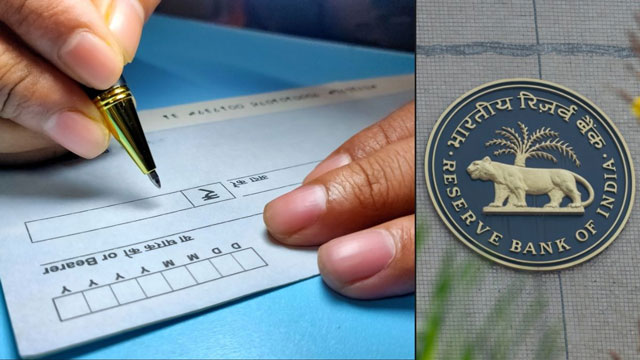Daijiworld Media Network – Mumbai / Kolkata
Mumbai / Kolkata, Oct 10: The Reserve Bank of India’s (RBI) much-anticipated real-time cheque clearance system, aimed at speeding up interbank transactions, is off to a faltering start as several banks struggle to adapt to the new model.
Customers across cities have reported delays, misplaced transactions, and lack of communication, largely due to operational glitches and untrained staff.
The system, introduced on October 4, replaces the traditional end-of-day, batch-based cheque clearing method. It promises to credit funds within hours of deposit by scanning and transmitting digital cheque images in real-time to a central operations centre.

Interbank settlements are to occur every hour from 11 am, with banks expected to confirm payment by 7 pm — failing which, cheques are auto-cleared.
However, the transition has been anything but smooth. “Bankers are not trained in the new process that requires them to scan cheques and transmit digital images to a central operations team the same day,” said a senior official at a Mumbai-based private bank. “There have also been issues with system integration, readability, and data punching—so some cheque details aren’t being read properly by the system, leading to rejections,” the official added.
Tech glitches stall clearance
Most banks reported problems with cheque image quality, inconsistent scanning procedures, and incompatible software, leading to cheques being rejected or processed under the old schedule—defeating the purpose of real-time clearance. “When a cheque doesn’t clear, staff have to manually go through those items and reprocess them. That adds to the delay,” the same official added.
To mitigate disruption, the RBI extended cheque clearing until 11 pm on Wednesday—well beyond the regular 7 pm cut-off. Still, customers and financial institutions say the delays are significant.
A senior executive at a Mumbai-based non-banking financial company (NBFC) explained the impact on businesses: “As an NBFC, we regularly receive post-dated cheques for EMI payments. Last Saturday, we deposited cheques worth Rs 20 crore. The funds were debited from customers’ accounts, but we haven’t been credited yet. Our bank cannot explain where the money is stuck.”
Customer backlash on social media
Frustrated users have turned to social media to voice their dissatisfaction. “Despite RBI’s CTS (Cheque Truncation System) mandate for same-day clearance, cheques deposited days ago remain uncleared,” wrote Travelnetic System LLP on 'X; (formerly Twitter).
Vivek Pandey, a PSU bank customer, posted: “My cheque has not been cleared for three days. The branch manager told me all customers are facing the same issue this week and asked me to wait.”
Another user, Anu Sam John, reported that cheques hadn’t cleared for five days. “When I called the bank, they just kept saying it’s a system issue and that it’ll be credited by tonight. That hasn’t happened,” she said.
System removed, but backup not ready
Perhaps most worrying for customers is that the old batch-based system has already been dismantled, leaving no fallback mechanism.“This new cheque clearing system is not working, and you’ve already closed the old one. Now cheques are not clearing even after 3–4 days,” posted Harsh Kukreja. “Some are even bouncing back due to connectivity errors,” he added.
A bank customer in Kolkata told ET that a cheque worth Rs 4.5 lac, drawn on a Delhi bank and deposited last Saturday, wasn’t processed that day. With Monday being a bank holiday in Kolkata, the cheque was debited on Tuesday but still hadn’t been credited to the Delhi account by Thursday.
Bankers urge patience
Despite the growing criticism, banks insist these are “teething issues” that will settle soon. “Every time a new system is introduced, these kinds of problems occur. We’re working on stabilising operations. Things should smooth out in a week or two,” said a public sector bank official.
Cheque usage declining
The disruptions, though serious, have been somewhat limited by the decreasing reliance on cheques, especially in urban centres. Corporates now favour digital payment methods like NEFT (National Electronic Funds Transfer) and RTGS (Real-Time Gross Settlement), while retail customers increasingly use UPI (Unified Payments Interface) for transactions.
According to RBI data, cheque usage has declined significantly—from 450 million per month in 2019 to between 200 and 300 million monthly since 2020.
Still, many businesses and institutions, including NBFCs, educational institutions, and government agencies, continue to depend on cheques—making the successful rollout of the real-time clearing system crucial.